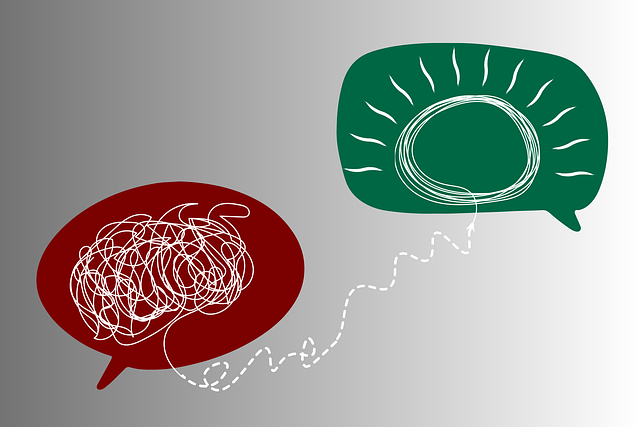The Oregon civil commitment process for mental health is a meticulous, multi-step procedure that begins with an initial assessment by qualified professionals to determine eligibility. This involves evaluations of medical records, interviews, and behavior observation. If needed, a court-appointed examiner assesses for mental disorders and inability to care for oneself. The process includes a hearing presenting evidence for the judge's decision, adhering to strict procedural guidelines that protect individual rights and ensure appropriate support and treatment. Collaboration between mental health professionals, family members, and legal experts is crucial throughout, with each step carefully documented to guide accurate legal commitments in Oregon.
Oregon’s civil commitment process is a multifaceted procedure designed to ensure safety and support for individuals with severe mental health conditions. This comprehensive guide delves into the intricate steps, from initial assessment and intervention to legal proceedings and post-commitment care. Understanding each stage, including roles of professionals and family, evaluation criteria, court involvement, and rights within a commitment order, is crucial for navigating Oregon’s mental health commitment process effectively.
- Initial Assessment and Intervention
- – When and how does the process begin?
- – Roles of mental health professionals and family members
- Evaluation by a Medical Professional
- – Requirements for commitment evaluation
Initial Assessment and Intervention

In Oregon, the civil commitment process for mental health is a multi-step procedure designed to ensure a balanced approach to an individual’s care and treatment. The initial assessment stage involves a thorough evaluation by qualified professionals to determine if the person meets the legal criteria for involuntary commitment. This critical phase includes a comprehensive review of medical records, interviews with the individual, and observations of their behavior to gauge the severity of their condition and the risk they pose to themselves or others.
If the initial assessment suggests a need for further intervention, the next steps involve an examination by a court-appointed examiner who will assess whether the person suffers from a mental disorder and is unable to provide for their own care. This procedural guide outlines clear paths for both voluntary and involuntary commitment, ensuring that individuals in Oregon receive the appropriate level of support and treatment while respecting their rights and freedoms.
– When and how does the process begin?

In Oregon, the civil commitment process begins when an individual’s mental health status poses a significant risk to themselves or others, leading to a petition being filed in court. This usually starts with a voluntary admission into a mental health facility for evaluation, which can be initiated by either the individual concerned or a family member/caregiver. If the patient’s condition doesn’t improve after 30 days, or if they pose an imminent danger, a mental health professional can file a petition with the court to have them committed. This formal process involves several stages, including a hearing where evidence is presented to determine whether the individual meets the legal criteria for civil commitment.
The Oregon legal commitment process follows strict procedural guidelines designed to ensure fairness and protect the rights of those being committed. The court will consider factors such as the risk posed by the individual, the least restrictive alternative available, and the need for treatment. Understanding these steps is crucial for anyone navigating the Oregon civil commitment process, ensuring that all parties are aware of their rights and the path forward in what can be a challenging time.
– Roles of mental health professionals and family members

In Oregon’s civil commitment process, mental health professionals and family members play crucial roles in ensuring a thorough and fair evaluation of an individual’s fitness to stand trial or manage their own affairs. Mental health professionals, such as psychiatrists and psychologists, are responsible for conducting comprehensive assessments to determine if an individual suffers from a mental disorder that substantially impairs their ability to understand the legal proceedings or make rational decisions. They provide critical insights into the person’s condition, treatment history, and prognosis, which inform the court’s decision during each stage of the Oregon civil commitment process.
Family members also contribute significantly by offering support, sharing relevant information about the individual’s behavior and history, and participating in court hearings. Their involvement helps to humanize the case, providing context beyond clinical assessments. Understanding this dynamic between professionals and family is key to navigating the commitment procedural guide of Oregon, ensuring that legal commitments are made with both sensitivity and accuracy throughout each civil commitment stage in Oregon.
Evaluation by a Medical Professional

In Oregon, the civil commitment process for mental health involves a thorough evaluation by a medical professional. The first step is typically a voluntary admission to a psychiatric facility, where qualified healthcare providers assess the individual’s condition and determine their eligibility for commitment. This initial stage is crucial in understanding the person’s needs and rights within the process.
If the individual agrees to treatment but their condition requires a more intensive level of care, a petition for civil commitment can be filed with the court. This involves submitting comprehensive medical records and expert opinions to support the request. The court will then schedule a hearing where evidence is presented, and the judge makes a decision based on the information provided, ensuring that all legal and procedural guidelines are followed throughout the Oregon civil commitment process.
– Requirements for commitment evaluation

In Oregon, the civil commitment process for mental health is a multi-step procedure designed to ensure a thorough evaluation and fair treatment for individuals facing severe psychiatric conditions. To initiate the process, there must be a petition filed by a qualified professional, such as a physician or licensed clinical social worker, asserting that the individual in question poses a danger to themselves or others due to mental illness. This initial step is crucial, setting the legal framework for the subsequent commitment evaluation.
The commitment evaluation involves comprehensive assessments conducted by mental health professionals, including psychiatrists and psychologists. These evaluations consider various factors, such as the nature and severity of the individual’s mental health condition, their history of treatment, and any risk factors or protective measures identified. The goal is to gain a deep understanding of the person’s current state and predict future behavior, ensuring that all aspects of the Oregon civil commitment process adhere to legal guidelines and ethical standards.






